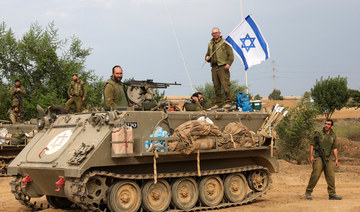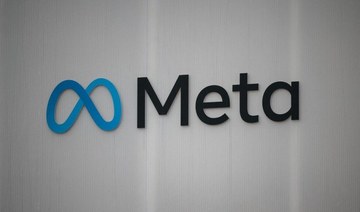DUBAI: YouTube’s end-of-year lists highlighting the most popular content in the Middle East and North Africa revealed that the top-trending video in the region this year was one in which Saudi gamer Bander Madkhali, username BanderitaX, shared personal details of his battle with depression.
Madkhali has nearly 14 million subscribers and more than 4 billion total views of his videos on the platform. The video about his mental health journey, which marked a departure from his usual video game-related content, has amassed almost 11 million views since it was uploaded on Jan. 2.
Abdulrahman AlHazmi, Madkhali’s partner manager at YouTube, who has been working with him for four years, told Arab News: “The honesty with which he shared his story on YouTube, with the sole objective of helping others feel less alone, is a testament to the power of community on YouTube.”
He added that the popularity of the video in a region in which mental health issues, particularly among men, continue to be a taboo subject is of particular significance.
“The fact that his video about mental health was the top trending video in MENA for 2023 shows how important this message is,” AlHazmi said.
Madkhali said his motivation for making the video came not only from his own experiences but those of others, including someone he knew who struggled for years before finally seeking help from a psychiatrist and starting to feel better within a few months.
“Instead of struggling for years and being in denial about what you’re going through” people can seek help and “get better through treatment, or even taking the right medication,” Madkhali told Arab News.
Still, he admitted he was “incredibly hesitant” and “worried” about talking publicly about mental health for fear of a backlash because “it is such a huge issue and nobody really accepts it.”
He said he mulled over the idea of speaking out for several years before mustering the courage to record and share the video.
“After a few years, I had the confidence to release it; it wasn’t a spur-of-the-moment decision,” Madkhali said.
In the video, he also talks about the effect of his faith and prayers while he was grappling with mental health issues. He said that he was aware that this could be a touchy subject but felt it was important to address it because people who do not accept mental health problems as being real often respond to those struggling with such issues with comments relating to faith and prayers, he said. For example, they might suggest a person is suffering because they do not pray or lack faith, he added.
“There are Sheikhs and Imams who have depression,” Madkhali said, so if strong faith and devotion to prayers could prevent problems, how is it possible that those “who pray, lead prayers and guide people have (mental) illnesses?”
He added: “Faith and prayer are important but it doesn’t necessarily mean that if you pray, fast and believe in Allah, you won’t be affected — just like with diabetes or high blood pressure.”
Madkhali said that his fears about uploading the video were eased when, much to his surprise, it received an overwhelmingly positive response and became the top video in the MENA region.
“I expected a lot of negativity but I was surprised that 90 percent of the comments were positive,” he said.
He received messages of thanks and support from people who had been struggling for years with similar issues and finally sought professional help after watching his video, he added.
In his video, Madkhali offered to donate SR100,000 ($27,000) to help those who want to seek medical help but lack the financial resources to pay for it, and revealed that he was working with his doctor at Saleem Medical Center to offer an 80 percent discount on the cost of the treatment.
“It feels great and is really comforting that I was able to benefit the largest number of people possible through this video,” Madkhali said.
YouTube said its rankings, compiled by the platform’s Trends and Culture team and covering videos, shorts, creators and songs, are based on several factors, including number of views, likes and comments, and how quickly engagement takes place.
The full lists of YouTube’s top ten videos, shorts, creators and songs in the MENA region for 2023 can be found here.

























